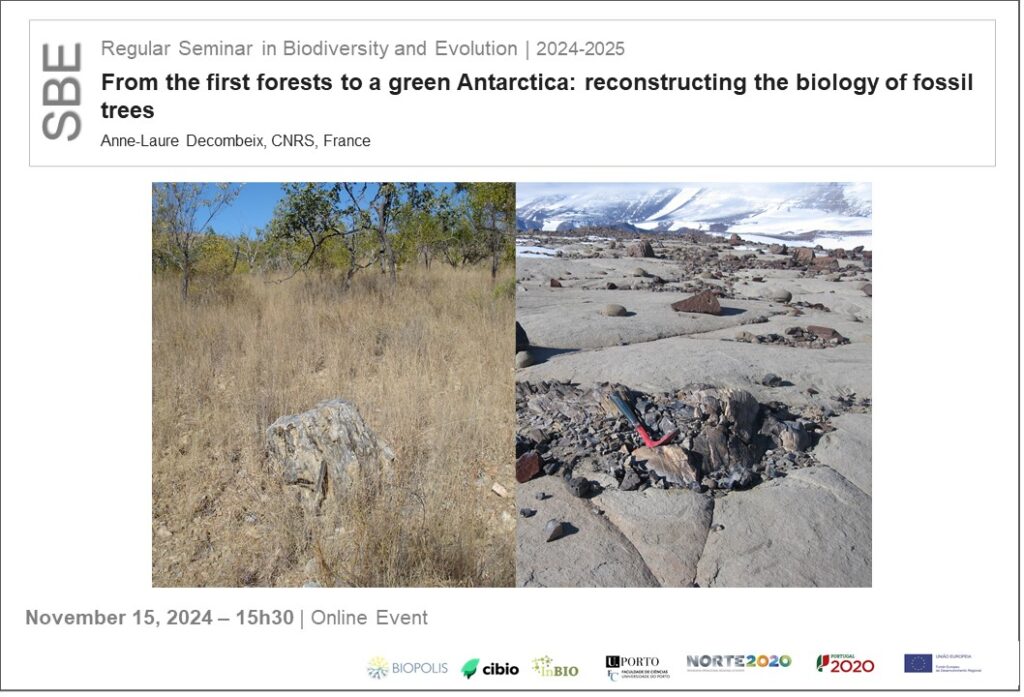From the first forests to a green Antarctica: reconstructing the biology of fossil trees
Anne-Laure Decombeix, CNRS, France
November 15, 2024 | 15h30 | Online (https://videoconf-colibri.zoom.us/j/99797933081)

The plant fossil record preserves a number of morphological and anatomical features that, combined with our knowledge of extant plant biology, can be studied using structure-function relationships. This approach allows us to analyze the dynamics of plant diversity in deep time through a functional prism that complements classical taxonomic approaches. It makes it possible to understand extinct plants as organisms that were once alive and interacted with their environment. This approach is relevant for whole-plants but also to answer functional questions at the level of a single plant organ (e.g., stems, leaves, roots) or tissue (e.g., wood). Some traits that are important to understand the biology of extinct plants are observable directly on the fossils. For example, the presence of a thick bark or of epicormic shoots that can repair the crown of a tree after a disturbance can indicate an ability to withstand stressful conditions. Growth-ring analysis will give us information on how fossil trees grew and reacted to their biotic and abiotic environment. Interactions between plants and organisms such as fungi or insects can also be observed directly, in some cases in great detail. More complex functional traits can also be investigated using a combination of measurements on the fossils and models based on extant plants. This includes for example modeling the biomechanical or hydraulic properties of fossil stems. In this seminar I will present some key results obtained in the last 10 years on the biology of (1) the different types of trees that formed the very first forests on Earth in the Devonian and earliest Carboniferous. (2) the trees that composed lush polar forests with no modern equivalent during the greenhouse climate period of the Late Permian and Triassic.
More information here